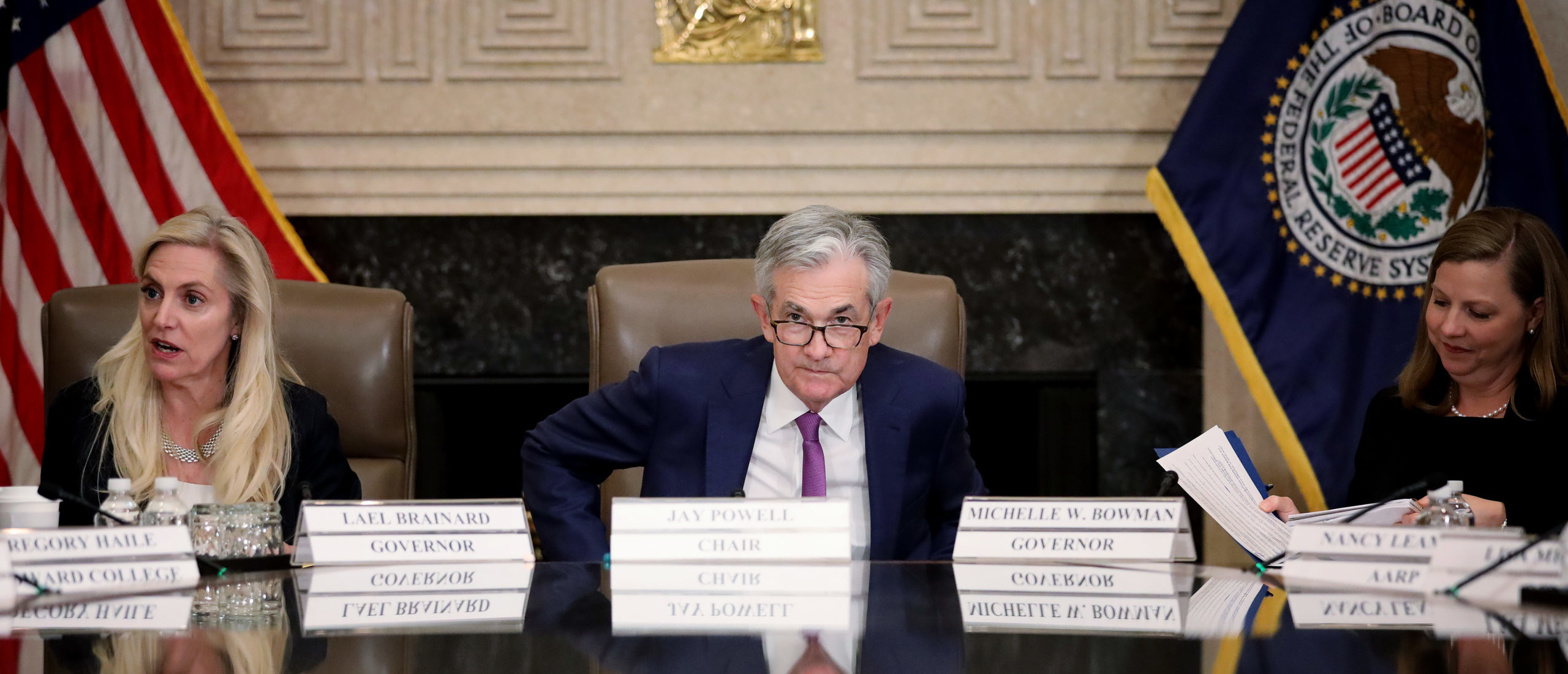The Federal Reserve approved a major policy change Thursday on how it targets inflation in a decision that is likely to leave interest rates low for a longer time.
The central bank’s Federal Open Market Committee announced its unanimous approval of an “average inflation targeting” policy in a statement Thursday. The policy change would allow inflation to “moderately” exceed the Federal Reserve’s 2% goal for a certain period of time.
The move effectively means that the Federal Reserve will be more likely to allow inflation to rise past its typical benchmark before hiking interest rates, according to CNBC.

Federal Reserve Board Chairman Jerome Powell attends an event at the Federal Reserve headquarters (Win McNamee/Getty Images)
The Federal Reserve also changed its approach to employment by announcing that the bank would not set a specific goal for the unemployment rate. The change was reportedly proposed after the bank cut interest rates three times in 2019 despite a 50-year low unemployment rate, according to The Hill.
Federal Reserve Chairman Jerome Powell first initiated a policy review in November 2018, less than a year after being appointed to the post by President Donald Trump. The review was reportedly motivated by concerns of slower than expected growth and declining borrowing costs, according to The Wall Street Journal.
Since then, the coronavirus pandemic has created a new set of challenges as the Federal Reserve cut its benchmark rate to between 1.5% and 1.75% and purchased trillions of dollars of government assets, The Wall Street Journal reported. (RELATED: The US National Debt Has Exceeded The Total Value Of The GDP)
“This change reflects our appreciation for the benefits of a strong labor market, particularly for many in low- and moderate-income communities,” Powell said in a speech Thursday. He added that “a robust job market can be sustained without causing an outbreak of inflation.”
The updated framework could lead to cheaper mortgages and business loans as interest rates are allowed to remain low for a longer period of time, according to The New York Times.


